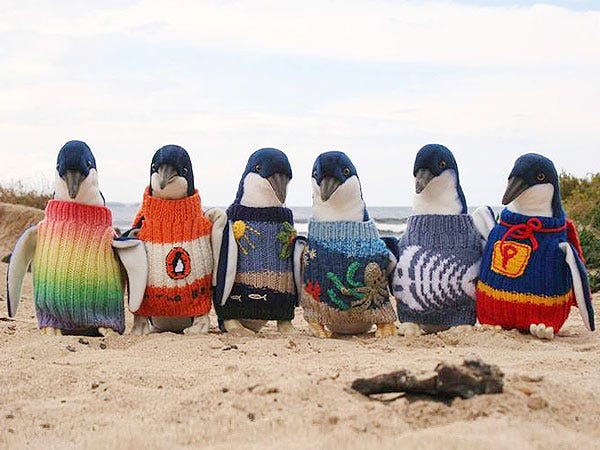So What, Who Cares (vol 2, issue 6) Why Pittsburgh may be the next great urban destination

Hello! You all need to know that January 14 is National Dress Up Your Pet Day. Americans spend approximately $55.5 billion on our furry/finned/feathered friends annually, so surely some of that is going toward cat tiaras and dog galoshes. Or snake sweaters.
(Note: that link is not a euphemism for anything and it's totally safe for work, but it's not a link you want to check out if you suffer from ophidiophobia.)
*
The old real estate bromide used to be "Space, location, cost -- pick two." If you're a millennial adult, the saying may be adjusted to "pick one." America's younger adults (ages 18-34) are facing falling median wages -- in other words, whatever wage growth they see is failing to keep up with inflation, so they can buy less on their salaries year-over-year -- in every industry except healthcare. This goes a long way toward explaining why Millennials aren't buying homes or cars at the same rate as prior generations.
It also highlights another problem: The places where Millennials can afford to live are usually not the same places that are statistically the most likely to lead to economic and social mobility.
So what? Pick one: Affordable housing or the chance to ascend socioeconomically. As The Atlantic reports:
Climbing the income ladder is easiest in the west and northeast. But finding an affordable home is easiest in the south and the Great Lakes/Appalachian region. California, home to six of the seven least affordable housing markets, has four of the 11 best cities for upward mobility.
There are three outliers in the data, cities where affordable homes and social mobility are both statistically significant: Pittsburgh, Minneapolis, and Salt Lake City. Good news for anyone thinking about moving to Pittsburgh: It's being touted as a model of civic reinvention, going from steel manufacturing to maker culture.

Who cares? Anyone who still subscribes to a definition of the American Dream where adults have both good jobs with opportunities for advancement and the chance to live well while living in affordable housing.
Although it is tempting to say, "Well, just stay away from cities," and fantasize about using your (presumed) urban drive to launch a rural lifestyle business or two (vol 1, issue 16), researchers are finding the same sharp splintering between rural areas that offer some economic mobility and those that do not; the former require some proximity to -- you guessed it -- a major economic center like a city and some cultural concentration like a university or college.
(This whole brief is a bummer, so enjoy a picture of a hipster cat. Perhaps they're already in Pittsburgh.)
*

Your pop-culture note of the day: I am embarrassingly fond of the opening narration on The Flash and The Arrow, so I was delighted by the trailer for Lego Batman 3's Arrow add-on -- both by the finishing line and by realizing that Stephen Amell did the narration. It's a hoot, if you love looking at animated Lego figures with stubble.
And in Green Arrow-related news, I've been working my way through Mike Grell's run on the title back in the 1980s. The writing was notable because the name "Green Arrow" doesn't get used, Oliver's mostly brawling civic-minded vigilante, there are no superpowers, and he's hanging out with his best gal in real-world Seattle. And thirty years on, the art is lovely because it manages to encapsulate 1980s aesthetics within the limitations of 1980s comics-art trends.
If you like the show Arrow but have not taken the plunge into the comics, I recommend two self-contained trades: start with Grell's The Longbow Hunters -- you can see some of its influence in the TV series, then hunt down Andy Diggle's Green Arrow run, Year One, which seems like background reading for any of the Arrow writers who had to do island flashback scenes.
We shall not speak of what Judd Winnick did to Oliver Queen.
*
Did you miss an issue of So What, Who Cares? The archive is here. Are there typos? I apologize in advance.
As always, I welcome your feedback and suggestions via email or Twitter. Always let me know what you think about So What, Who Cares? If you really like it, tell a friend to subscribe.

